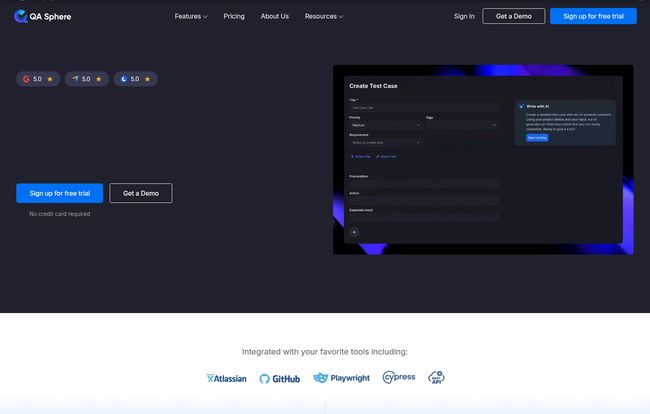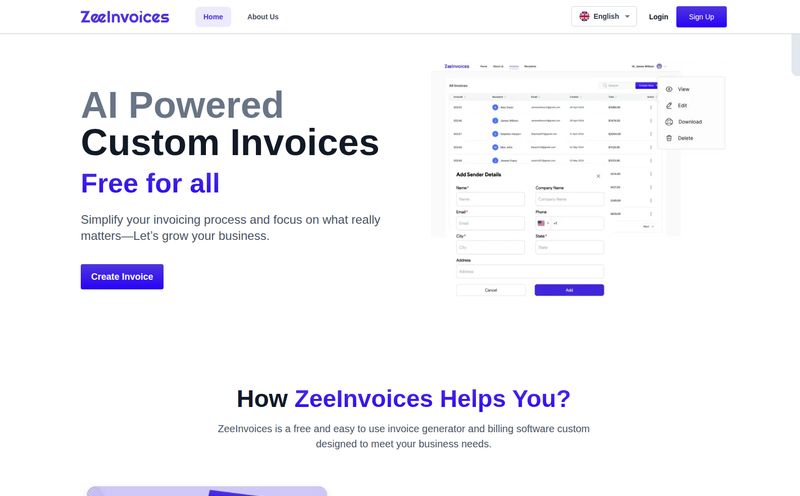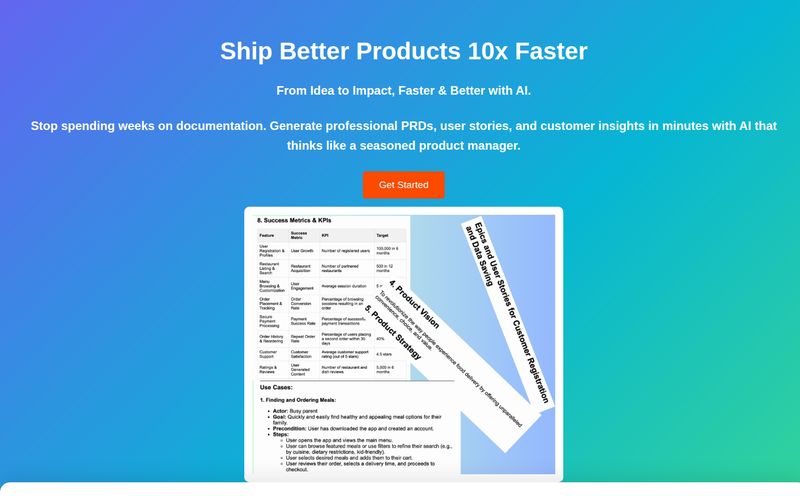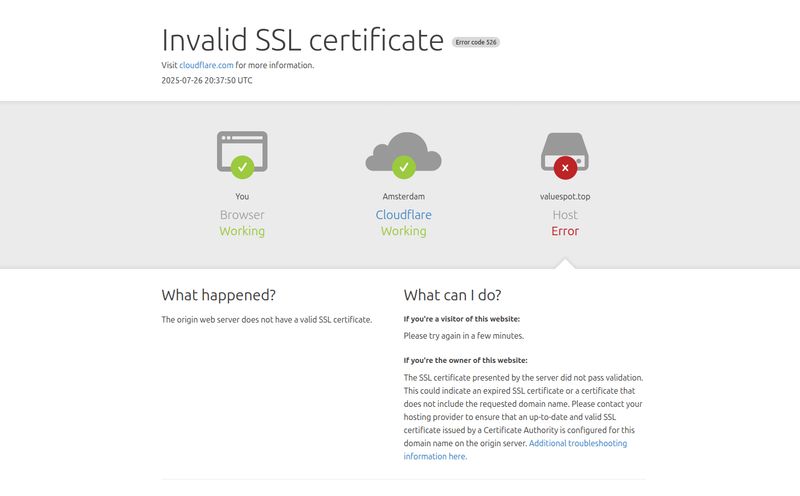If you've spent any time in the quality assurance world, you know the spreadsheet. That sprawling, multi-tabbed, color-coded beast that’s supposed to be the single source of truth for all your test cases. It starts out clean, organized, a beacon of hope. A few sprints later, it’s a crime scene. Version control is a nightmare, nobody knows which tests are up-to-date, and finding anything is a full-blown expedition.
I've been there. I've lived that life. For years, the industry has been crying out for tools that are smart, intuitive, and don't require a PhD to operate. So when I heard about QA Sphere, an AI-powered test management platform, my curiosity was definitely piqued. Another tool promising to solve all our problems? Skeptical, but hopeful.
So I rolled up my sleeves and took a good, long look. Is it just another pretty interface with a buzzword attached, or is there some real substance here? Let's get into it.

Visit QA Sphere
So What Exactly is QA Sphere?
On the surface, QA Sphere is a test management platform. But that's like calling a smartphone a pocket calculator. It technically does that, but it misses the whole point. Think of it less as a dusty filing cabinet for your tests and more like a smart, self-organizing command center for your entire QA workflow.
The core idea is beautifully simple. You build a central library of all your test cases. This becomes your team's sacred text—the one true source. When you need to plan a test run for a new feature or a regression cycle, you don't start from scratch. You just pick and choose the relevant tests from your library, bundle them into a test plan, and assign them out. It keeps track of who's testing what, what passed, what failed, and what's still pending. It’s the digital checklist we've always wanted, but with a brain.
The Features That Actually Move the Needle
A tool is only as good as its features, right? But I'm not interested in a laundry list of specs. I want to know what actually saves me time and sanity. Here’s what stood out to me.
The Much-Hyped AI-Powered Test Management
Okay, let's address the elephant in the room: the "AI" part. A lot of companies are slapping AI onto their products like hot sauce on everything. Sometimes it's just marketing fluff. With QA Sphere, it feels a bit more integrated. The platform uses AI to give you smart suggestions when you're writing or updating test cases. It can help generate boilerplate steps or identify potentially redundant tests. It’s not going to do your job for you, but it acts like a really helpful assistant, speeding up the tedious parts so you can focus on the tricky logic. It’s a subtle but powerful time-saver.
A Test Case Library That Sparks Joy
This sounds boring, but in my experience, it's the most important part. Having a clean, centralized, and easily searchable test case library is a game-changer. No more digging through folders or asking, "Hey, does anyone have the latest test cases for the login page?" It's all there. You can organize by feature, by component, by priority—whatever makes sense for your team. This organizational clarity is the foundation for an efficient QA process. It's the digital Marie Kondo for your test suites.
Building Test Runs Without the Headache
Once your library is in order, creating test runs becomes almost… fun. The advanced test run builder lets you quickly assemble tests for a specific release or sprint. You can see coverage at a glance and easily schedule the run. It transforms planning from a dreaded chore into a quick, strategic task. This is where you really start to feel the ROI, in minutes and hours saved every single week.
Integrations That Just Make Sense
A testing tool that doesn't play well with others is a non-starter. QA Sphere clearly gets this. The logos on their site tell the story: Atlassian, GitHub, GitLab. This means you can link a failed test directly to a new bug ticket in Jira or an issue in GitHub. No more manually copying and pasting steps to reproduce, screenshots, and environment details. This seamless flow between identifying a failure and reporting it is huge for team efficiency and reducing human error. They also integrate with tools like Cypress and TestRail, which shows they're thinking about the broader testing ecosystem.
My Honest Take: The Good, The Bad, and The "It Depends"
No tool is perfect. Let's get real about where QA Sphere shines and where it might fall a bit short.
What I really liked was, first and foremost, the clean and intuitive design. A tool I have to use all day shouldn't look like a relic from 1999, and this one is genuinely pleasant to navigate. The AI-powered features, while not magic, are genuinely useful for speeding up test creation. And the overall feature set feels efficient and purposeful, not bloated with things you'll never use. It's focused.
On the flip side, there are a few things to consider. The attachment space on the lower-tier plans is a bit tight. The 1GB on the Free plan can get eaten up quickly if your team relies on screen recordings to document bugs. The big one for me, and a classic SaaS move, is that advanced authentication like SSO (Single Sign-On) is only available on the Business plan. For a scaling startup that's security-conscious, that might be a tough pill to swallow. You might need that feature long before you feel like a "Business"-sized team. Similarly, dedicated support is reserved for the Enterprise plan, which is pretty standard but still something to be aware of.
Let's Talk Money: A Look at QA Sphere's Pricing
Pricing can make or break a tool's adoption. QA Sphere's model seems pretty competitive and straightforward. Here's a quick rundown:
| Plan | Price | Who It's For |
|---|---|---|
| Free | Totally Free | Small teams (up to 3 users) just getting started or wanting to try it out. Comes with 1GB of storage. |
| Standard | $12 /user/month | The sweet spot for most growing teams. You get unlimited users and a much more generous 200GB of storage. |
| Business | $24 /user/month | Larger teams with more complex needs. This is where you unlock advanced security, SSO, and 1TB+ of storage. |
| Enterprise | Contact for Price | Big organizations that need dedicated support, custom integrations, and the whole nine yards. |
For what you're getting, I think the pricing is very fair. The free plan is genuinely useful, not just a crippled demo, which is a huge plus. You can find more details over on their pricing page.
Who Should Be Using QA Sphere?
This isn't a one-size-fits-all solution, but it covers a lot of ground. I see it being a perfect fit for:
- Startups and Small QA Teams: The Free or Standard plan is a no-brainer. It will bring a level of organization that spreadsheets simply can't match, without breaking the bank.
- Mid-Sized Companies: Teams that are feeling the growing pains of a disorganized process will find a ton of value in the Standard or Business plans. The structure and integrations will pay for themselves in saved time.
- Modern Software Teams: Any team, regardless of size, that values efficiency and wants to move away from clunky, legacy tools. If your team lives in Jira and GitHub, this will feel like a natural extension of your workflow.
Who is it maybe not for? A single developer working on a small personal project might find it to be overkill. And a massive corporation with a deeply entrenched, custom-built system from teh stone age might face too much institutional inertia to switch. But for everyone in between? It’s a very strong contender.
Frequently Asked Questions
Do you offer a trial period?
Yes! QA Sphere offers a 30-day free trial that includes all the premium features. This gives you plenty of time to see if it’s a good fit for your team's workflow before committing.
What happens when my trial ends?
When your 30-day trial of the premium features ends, your account will be automatically moved to the Free plan. You won't lose your data, but you will be subject to the limitations of that plan (like 3 users and 1GB of storage).
Is it hard to import my existing test cases?
They seem to have thought this through. QA Sphere allows you to import existing test cases via CSV files. Their website also mentions that their dedicated team can help with more complex migrations, which is a nice touch.
Can I change or cancel my plan at any time?
Absolutely. You can upgrade, downgrade, or cancel your plan at any time. The changes will take effect at the end of your current billing cycle.
How does the AI actually help me test?
The AI acts as a co-pilot during test creation. It provides smart suggestions to help you write clearer and more effective test cases faster. It can also help identify duplicate or outdated tests in your library, keeping your test suite clean and efficient.
The Final Verdict: Is QA Sphere Worth It?
After spending time digging into QA Sphere, I'm genuinely impressed. It’s a well-designed, thoughtfully built platform that solves real-world QA problems without overcomplicating things. It strikes a fantastic balance between powerful features and user-friendly design.
It successfully avoids the two main pitfalls of modern software: it's not a bloated, clunky enterprise tool, and it's not a flimsy app that's more style than substance. The AI implementation is practical, the core test management workflow is solid, and the pricing is accessible.
If you and your team are tired of fighting with spreadsheets and are looking for a central hub to bring order to your QA chaos, then I think QA Sphere is absolutely worth your time. Give the free trial a spin. What have you got to lose? Besides that monstrous, soul-crushing spreadsheet, of course.
Reference and Sources
- QA Sphere Official Website: https://qasphere.com
- QA Sphere Pricing Page: https://qasphere.com/pricing



